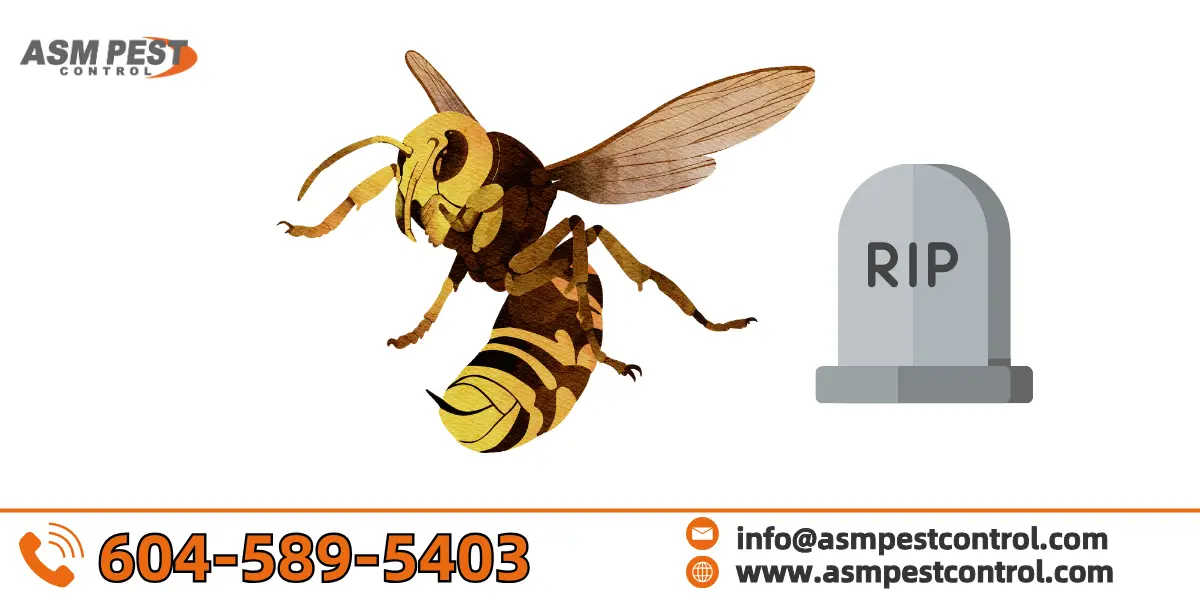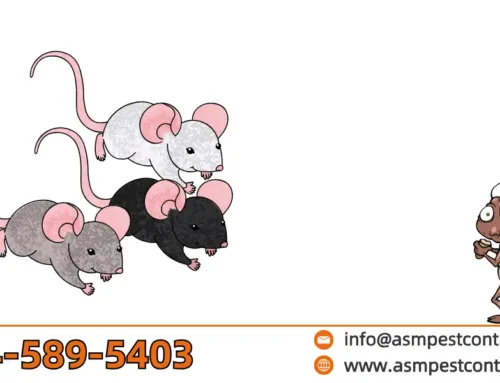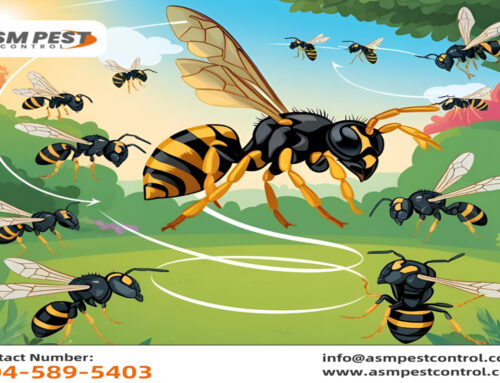The wasp is a typical summer pest usually characterized by their stinging bites and offensive manner. If you’ve ever encountered one, you may have wondered: Do wasps die after stinging like bees do? The answer might shock you, and knowing the facts can save you some unpleasant stings and even serious reactions.
Throughout this blog, we will dissect the science behind wasp stings, why they sting, what happens when you are stung, and how to avoid them in the future.
Do Wasps Die After Stinging?
Wasps, unlike honeybees, do not die after stinging. They can sting repeatedly and never hurt themselves. The crucial distinction of this is called anatomy. The stinger of a bee is barbed and penetrates the skin of a victim. Removing the stinger, the bee also loses a bit of its abdomen, and thus, this eventually causes the death of the bee.
Wasp control surrey, however, possesses smooth stingers. They are developed to be withdrawn with ease, enabling them to sting repeatedly. This is what makes wasps very dangerous, especially when they feel threatened or when they are protecting their nest.
Why Do Wasps Sting?
Wasps are not randomly stung. They mostly sting when they are provoked or when their nest is disturbed. Originally, there are two triggers:
- Defense of the territory: Wasps are highly territorial. They would sting to protect their nest when they feel it is threatened.
- Agitation: Agitation such as fast movements, loud noises, or trying to swat them away can provoke an attack on wasps.
Certain species (yellow jackets, paper wasps) of wasps tend to be more aggressive and may thus chase the threat of danger over long distances.
Can a Wasp Sting Multiple Times?
Yes, and this is what makes the attack of the wasp especially dangerous. The wasp control abbotsford is capable of repeated painful stings. In addition, when a wasp stings you, it emits a pheromone alert to attract other wasps in the vicinity. That is why the encounter of wasps might develop to a swarming extent.
Wasps are more dangerous in responding to irritation because, as opposed to bees that die once they sting, wasps can sting severally in their life.
Wasp Sting Symptoms and Risks
While most people experience only temporary pain and swelling, some can suffer more severe symptoms. Here’s what to expect:
Common Symptoms
- Redness and swelling on body parts
- A person can feel sharp, burning pain
- Itching or irritation
Severe Reactions
- Hives or rash over the body
- Trouble breathing or dizziness
How Long Does a Wasp Sting Last?
The duration of symptoms varies:
- Mild reactions: Usually resolve within 1 to 3 days.
- Moderate swelling: Can last up to a week.
- Severe allergic responses: Require emergency care and can have lasting effects.
Another thing worth mentioning is that the pain varies depending on the wasp control coquitlam species. As an example, the tarantula hawk wasp scores highly on the Schmidt Pain Index, and its pain is severe but short-lived.
What to Do If You’re Stung by a Wasp
Follow these steps to treat a wasp sting effectively:
- First, clean the stinging area with soap and water to prevent infection.
- After cleaning, apply an ice pack to reduce swelling and pain.
- Take pain reducers like ibuprofen if needed.
- Watch for signs of allergic reaction, especially if it’s your first time being stung.
Seek medical attention immediately if you notice trouble breathing, throat swelling, or dizziness.
How to Prevent Wasp Attacks
Avoiding wasps altogether is the best defense. Here are the proactive steps:
- Stay calm around wasps; don’t swat or wave your arms.
- Avoid sweet scents from perfumes, shampoos, or lotions.
- Wear neutral-colored clothing rather than bright or floral prints.
- Keep food and drinks covered when eating outdoors.
- Seal garbage cans and clean up fallen fruits in your yard.
The end of summer and early fall are especially dangerous because wasps are also more territorial and active.
Understanding the Wasp’s Role in Nature
As much as wasps may appear as pests, there are ecological functions of wasps. They control other insect populations and can also contribute to pollination. They are, however, defensive in nature, hence the prospect of some harm being caused to individuals, especially when the nests are close to residential quarters or places where human activities are high.
FAQs
1. Do wasps leave their stinger in you?
No, unlike bees, wasps do not leave their stinger behind.
2. Are all wasps aggressive?
Not all wasps are equally aggressive. Some wasps, like paper wasps and yellow jackets, are more likely to sting than solitary wasps.
3. What attracts wasps to humans?
Wasps are attracted to sweet smells, bright colors, food, and sugary drinks. Body odor, perfumes, and leftover food can also lure them in.
4. Can a wasp sting cause delayed reactions?
Yes, some people may develop swelling, itching, or infection several hours or even a day after being stung. Monitor the area and consult a doctor if symptoms worsen.
Final Thoughts
So, do wasps die after stinging? The answer is a resounding no. Wasps can sting repeatedly without harm to themselves, making them a more dangerous threat than bees in many situations. Understanding their behavior and knowing how to respond can significantly reduce your risk of painful stings or allergic reactions.
If you discover a nest or experience recurring wasp activity, don’t try to handle it yourself. Call in professionals to assess the situation and remove the risk safely.






